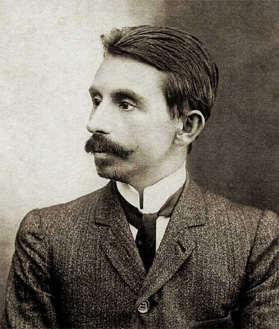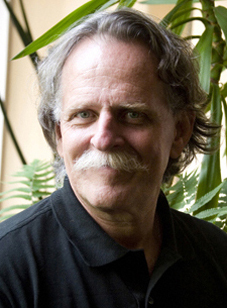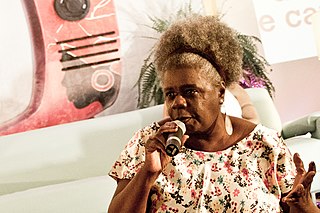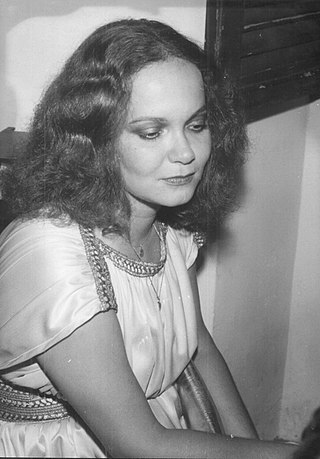
Euclides da Cunha was a Brazilian journalist, sociologist and engineer. His most important work is Os Sertões, a non-fictional account of the military expeditions promoted by the Brazilian government against the rebellious village of Canudos, known as the War of Canudos.

José Eduardo Agualusa Alves da Cunha is an Angolan journalist and writer of Portuguese and Brazilian descent. He studied agronomy and silviculture in Lisbon, Portugal. Currently he resides in the Island of Mozambique, working as a writer and journalist. He also has been working to establish a public library on the island.

Henrique Maximiano Coelho Neto was a Brazilian writer and politician. He founded and occupied the second chair of the Brazilian Academy of Letters, from 1897 until his death in 1934. He was also the president of the aforementioned Academy in 1926.

Bruna Patricia Maria Teresa Romilda Lombardi is a Brazilian poet, writer, model, and film and TV actress. She is daughter of Italian film producer Ugo Lombardi.
The Prêmio Jabuti is the most traditional literary award in Brazil, given by the Brazilian Book Chamber (CBL). It was conceived by Edgard Cavalheiro in 1959 when he presided over the CBL, with the interest of rewarding authors, editors, illustrators, graphics and booksellers who stood out each year.
Brígida Baltar was a Brazilian visual artist. Her work spanned across a wide range of mediums, including video, performance, installation, drawing, and sculpture. She was interested in capturing the ephemeral in her artwork.

Claudio Edinger is a Brazilian photographer born in Rio de Janeiro in 1952. He lived in New York from 1976 to 1996.

Bartolomeu de Gusmão Airport was a Brazilian airport built to handle the operations with the rigid airships Graf Zeppelin and Hindenburg. The airport was named after Bartolomeu Lourenço de Gusmão (1685–1724), a Portuguese priest born in Brazil who did research about transportation with balloons.

Afonsos Air Force Base – BAAF is a base of the Brazilian Air Force, located in the district of Marechal Hermes, in Rio de Janeiro, Brazil.

Maria Amália Vaz de Carvalho was a Portuguese writer and poet. She was the first woman to join the Portuguese Academy of Sciences.

Adriana Lisboa is a Brazilian writer. She is the author of seven novels, and has also published poetry, short stories, essays, and books for children. Originally written in Portuguese, her books have been translated into more than a dozen languages. Crow Blue is Lisboa's most recent novel translated into English and was named a book of the year by The Independent (London). Her stories and poems have appeared in Granta, Modern Poetry in Translation, The Brooklyn Rail, Litro, The Missing Slate, Joyland, Sonofabook, Waxwing, and others.

The São Paulo Prize for Literature is a Brazilian literary prize for novels written in the Portuguese language and published in Brazil. It was established in 2008 by the Secretary of Culture for the State of São Paulo. Though not as old as other literary prizes in Brazil, such as the Machado de Assis Prize, the São Paulo Prize has quickly risen in prestige. For example, in 2011, there were 221 submissions for the prize. This rapid rise in popularity is partly because of the large cash prize. Every year two prizes of R$200,000 each are awarded—one for the best novel of the year by an established author, and the other for the best novel of the year by a debut author—making the São Paulo Prize the largest prize for a published work in Brazil, and one of the largest literary prizes in the world. Ten finalists are listed for each award, during the Festival da Mantiqueira, and the winners are announced on the first Monday of August in the Museum of the Portuguese Language.

Events in the year 1948 in Brazil.

Lêdo Ivo was a Brazilian poet, novelist, essayist and journalist. He was member of the Brazilian Academy of Letters, elected in 1986.

Maria da Conceição Evaristo de Brito is a Brazilian writer. Her work is marked by her life experiences as an Afro-Brazilian woman, which she calls escrevivência—a portmanteau of escrita (writing) and vivência. She was born into a humble family and is the second oldest of 9 siblings, being the first in her household to earn a university degree. She helped her mother and aunt with washing clothes and deliveries, while studying.

Silviano Santiago is a Brazilian writer, literary critic, essayist and scholar.
Ruy Alberto Duarte Gomes de Carvalho was an Angolan author and filmmaker, whose work, which over more than three decades spanned poetry, metafiction, and anthropology, focused on the Kuvale people of the southern Angola. Writing for Carvalho's entry in the Dictionary of African Biography (2012), Livia Apa commented that even if "In their complexity, Ruy Duarte de Carvalho's works are some of the most interesting and original works in contemporary Portuguese literature. Curiously, in spite of its importance, his work is rarely translated or taught abroad. Only a few of his books have been recently published in Brazil, and most of his films have disappeared, or been lost or badly damaged." Since 2016, some of the films he directed between 1975 and 1989 can be watched online at RDC Virtual.

Lucila Nogueira Rodrigues was a Brazilian poet, essayist, short story writer, educator, and federal prosecutor. Published in 1978, Almenara won the Manuel Bandeira Poetry Prize in Pernambuco. It was the first of the 25 poetry books she was to publish, many of which were translated. Nogueira also published many books of literary criticism and short stories. In 2006, Nogueira was the first woman to represent Brazil at the International Poetry Festival of Medellín. In addition to being a celebrated author, Nogueira was a federal prosecutor, a professor of literature at the Federal University of Pernambuco, a member of the Brazilian Academy of Philology, one of the directors of the Brazilian Union of Writers, and, since 1992, a member of the Pernambuco Academy of Letters and Literature - Academia Pernambucana de Letras.

Amadeu Thiago de Mello, published as Thiago de Mello, was a Brazilian poet, writer, translator, and environmental activist. He was among the most appreciated writers in the country and especially as an icon of Amazonian regional literature. His work has been translated into numerous languages.

Jarid Arraes is a Brazilian poet and writer. She is the writer of such books as As Lendas de Dandara, Heroínas Negras Brasileiras em 15 cordéis, Um buraco com meu nome, and Redemoinho em dia quente. Arraes lives in São Paulo, where she created the Women's Writing Club. To date, she has more than 70 publications in the cordel literature style, including the biographical collection Heroínas Negras na História do Brasil.

















